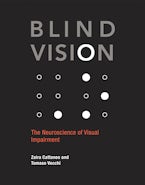[Networks of the Brain]'s most important contribution lies in connecting neuroscience with the science of networks.... This is where we should be looking for solutions to the great mysteries of life and the mind.
American Scientist
Networks of the Brain is a unique resource. It defines the nature and scope of one of the newest and most exciting research programs in cognitive neuroscience.
Minds & Machines
If you have not discovered this book yet, take a look. Highly recommended. Fascinating.
Complexity and Social Networks Blog
In Networks of the Brain, Olaf Sporns synthesizes two of the most exciting topics in science today and links the latest breakthroughs to their deep historical roots. A graceful, authoritative, and fascinating book.
Steven Strogatz, Schurman Professor of Applied Mathematics, Cornell University, and author of Sync
Sporns's book is a very important and scholarly contribution to our understanding of brain function. It offers a view of neuroscience that is breathtakingly broad and provides just the sort of perspective needed if we are to integrate knowledge of form cells, social groups, and everything in between. It lays out the evidence for a real paradigm shift in how we must pursue our understanding of the brain's workings.
Marcus Raichle, Professor of Radiology, Neurology, Neurobiology and Biomedical Engineering, Washington University in St. Louis
This excellent book instills a sense of excitement about understanding the brain in terms of network theory. Despite the fact it does not contain a single equation, one comes away from Sporns's book with a sense of insight and perspective rarely attained by treatments of this sort. In short, this is a resource of conceptual treasures for anyone interested in a modern understanding of the brain. It will be appreciated by students and seasoned academics alike.
Karl Friston, Wellcome Trust Centre for Neuroimaging, University College London
Written engagingly by a master at the top of his game, Sporns's book unites neural structure, function, connectivity, and dynamics into a single, quantitative, and coherent framework—brain network science that goes a long way toward understanding the dynamic patterns of the brain that underlie behavior and cognition. Essential for the transdisciplinary neuroscientist of the future.
J.A. Scott Kelso, author of Dynamic Patterns: The Self-Organization of Brain and Behavior and The Complementary Nature

Honorable Mention, 2010 American Publishers Award for Professional and Scholarly Excellence (PROSE) in the Biomedicine and Neuroscience category.











